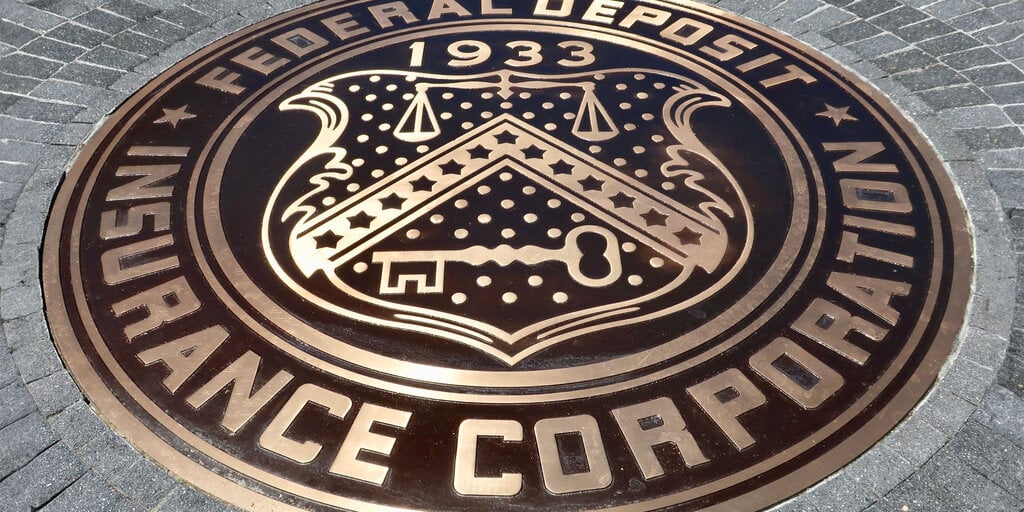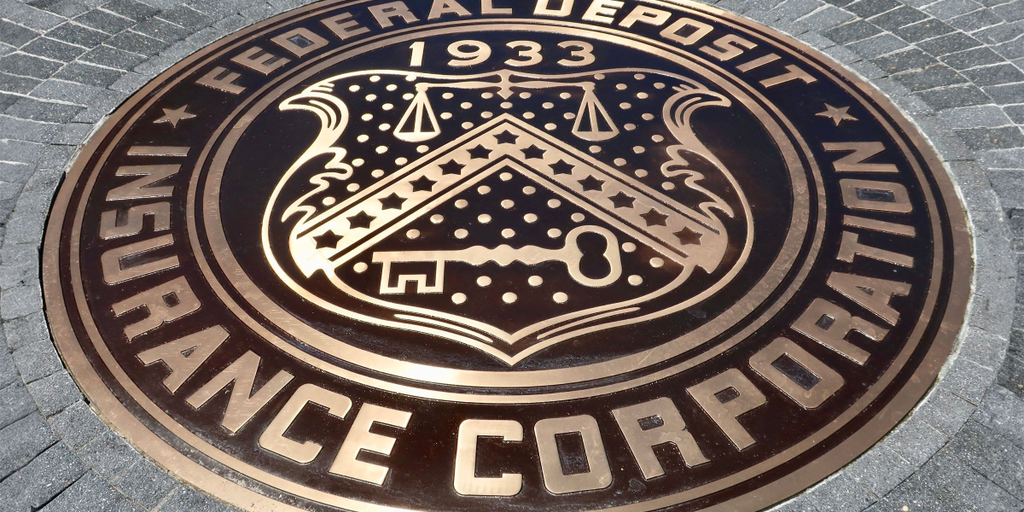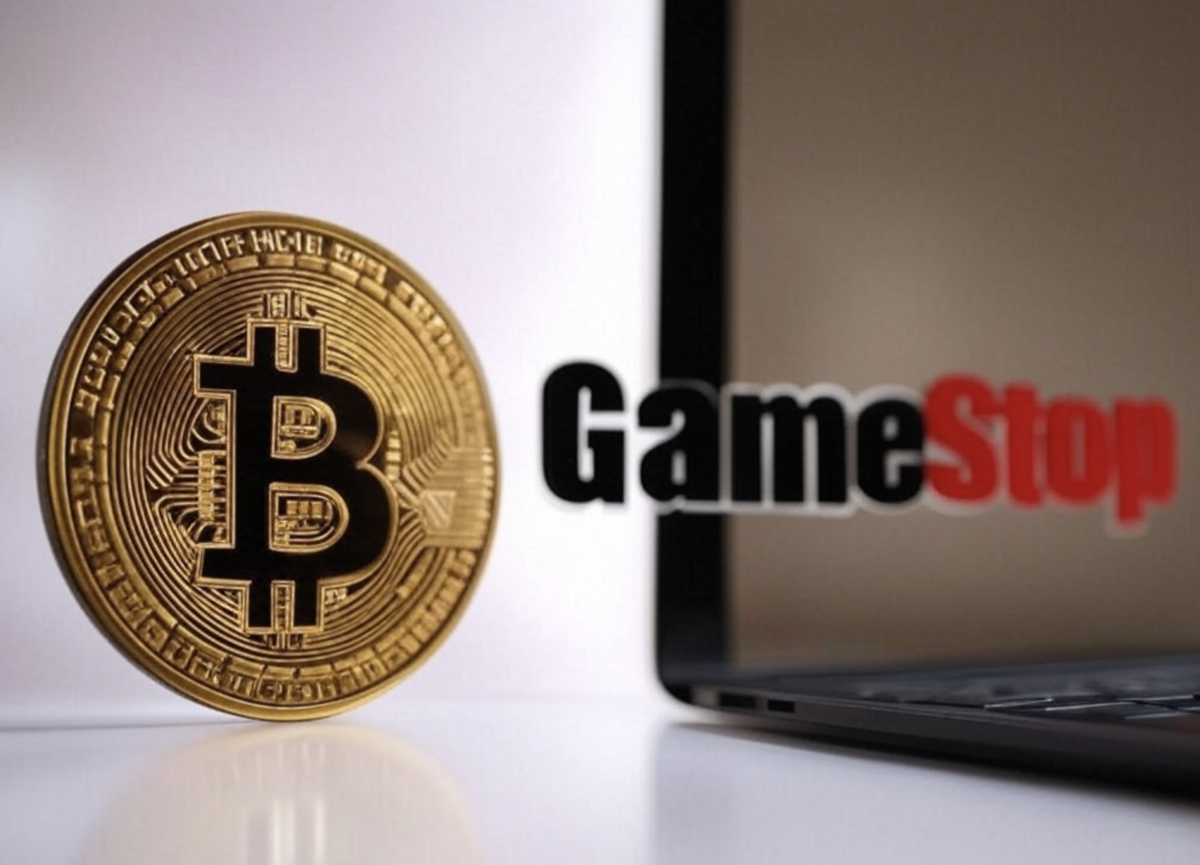business
Co-Founder of Crypto Firm Behind Trump, Melania Tokens Resigns Amid Insider Trading Allegations
Published
1 month agoon
By
admin

Ben Chow, co-founder of Meteora—the Solana-based platform behind the controversial Trump and Melania token launches—has resigned following insider trading allegations that have surfaced after the collapse of LIBRA token, a crypto initially backed by Argentine President Javier Milei whose value plummeted over 90% within hours of its launch.
Meow, the pseudonymous co-founder of both Meteora and Jupiter exchange, confirmed in a tweet on Monday that Ben’s resignation came following his lack of judgment as a project lead in the past few months.
Neither Chow nor Meow have responded to Decrypt’s requests for comment.
The LIBRA token’s collapse has cranked up insider trading accusations, with on-chain analysts pointing to suspicious wallet activity and the possible involvement of insiders dumping tokens at the asset’s price peak.
Amid the allegations, platforms such as Meteora, which provided technical support for the token launch, got caught in the crossfire.
With the firm now seeking new leadership, Chow’s exit has raised questions about the ethics surrounding high-profile token launches and their far-reaching impact on crypto.
In the wake of the allegations, Meow clarified his companies’ stance, noting neither Jupiter nor Meteora were involved in insider trading or financial misconduct.
Jupiter has previously acknowledged while the launch of an “Argentina Coin” had been “an open secret” within meme coin circles, no one at Jupiter knew the specifics in advance.
Meteora had been reportedly operating independently of Jupiter for over a year, with Ben running the firm without significant involvement from Meow.
Chow has not yet released an official statement, but he previously addressed the controversy on X, offering his side of the story.
In a series of tweets on Saturday, he initially explained that Meteora’s involvement in the LIBRA launch was limited to providing technical support.
“The $LIBRA team used Meteora, which is a permission-less platform,” the Meteora co-founder tweeted. “We never had any access to the tokens or to Milei.”
He clarified Meteora did not play a role in the launch decision-making or market-making activities, as the platform allows anyone to create pools and tokens without direct involvement from the Meteora team.
However, Ben later backtracked on his initial tweet, acknowledging that questions had arisen regarding Meteora’s role in the launch of LIBRA and other tokens.
Chow explained his relationship with Hayden Davis of Kelsier Ventures, who was involved in the launch of the LIBRA, TRUMP, and MELANIA meme coins.
“I referred them [Hayden Davis] to a handful of other projects that had inquired with us about deployer firms, which included the team behind $MELANIA,” Ben wrote.
He reportedly referred Kelsier Ventures to other projects and said that their relationship was built on mutual trust developed during the successful launch of the M3M3 token in December.
In response to community backlash, Meow announced plans for an independent third-party investigation. They are seeking to hire California-based law firm Fenwick & West to handle the allegations and promote transparency.
Chow’s resignation has been met with mixed reactions, with some support from figures such as Kash Dhandha, a founding member of Super Team DAO and a ‘Cat Herder’ at Jupiter, who defended him as a victim of “strategic mistakes” rather than misconduct.
LIBRA saw its market cap surge to $4 billion before plummeting by 91%, fueling suspicions of market manipulation.
The fallout from LIBRA continues to shadow Milei, who now faces impeachment calls and legal action accusing him of fraud over his promotion of the token.
Edited by Sebastian Sinclair
Daily Debrief Newsletter
Start every day with the top news stories right now, plus original features, a podcast, videos and more.
Source link
You may like


Kraken Secures Restricted Dealer Status in Canada Amid 'Turning Point' for Crypto in the Country


Binance Sidelines Pi Network Again In Vote To List Initiative, Here’s All


XRP Price Reversal Toward $3.5 In The Works With Short And Long-Term Targets Revealed


Former New York governor advised OKX over $505M federal probe: Report


First Digital USD (FDUSD) Depegs After Justin Sun Alleges Firm Is ‘Insolvent’ and Not Fulfilling Redemptions


Gen Z’s Bitcoin Bet, The Largest Wealth Transfer In History?
business
FDIC Clears Path for Bank Crypto Activities Without Prior Approval
Published
5 days agoon
March 29, 2025By
admin

Banks can engage in cryptocurrency and other legally permitted activities without seeking prior regulatory approval, so long as they manage risks appropriately, The Federal Deposit Insurance Corporation announced Friday.
The policy change rescinds a 2022 requirement that mandated FDIC-supervised institutions notify the agency before engaging in crypto-related activities. Under the new guidance, banks can offer services involving digital assets without the agency’s advance permission.
“With today’s action, the FDIC is turning the page on the flawed approach of the past three years,” FDIC Acting Chairman Travis Hill said in a statement. “I expect this to be one of several steps the FDIC will take to lay out a new approach for how banks can engage in crypto and blockchain-related activities in accordance with safety and soundness standards.”
The move aligns with similar actions by the Office of the Comptroller of the Currency, which earlier this month reaffirmed that national banks can engage in certain crypto activities, including custody services and stablecoin transactions.
This regulatory shift marks a stark departure from the Biden administration’s approach to cryptocurrency and banking relationships. Documents released earlier this year through Freedom of Information Act requests showed the FDIC frequently deterred banks from offering crypto-related services, critics claimed.
The previous regulatory stance had drawn criticism from lawmakers who started investigations into what some called “Operation Chokepoint 2.0,” a reference to an Obama-era initiative that targeted certain industries including firearms dealers and payday lenders. Critics claimed the Biden administration had similarly targeted the cryptocurrency industry through banking restrictions.
In its new Financial Institution Letter (FIL-7-2025), the FDIC clarified that “FDIC-supervised institutions may engage in permissible crypto-related activities without receiving prior FDIC approval.”
The reversal follows months of pressure from cryptocurrency advocates and completes a significant pivot in federal banking policy. Industry representatives had accused regulators of using informal pressure tactics, including concerns about “reputational risk,” to discourage banks from serving cryptocurrency businesses.
American Bankers Association President and CEO Rob Nichols praised the decision. “We welcome FDIC’s new guidance allowing supervised institutions to engage in permissible crypto-related activities without receiving prior FDIC approval,” he said in an official statement. “America’s banks are actively evaluating ways to compete safely and responsibly across the financial services ecosystem, and this type of regulatory clarity is critical to enhancing innovation in the space.”
The FDIC emphasized that banks still need to consider various risks associated with crypto activities, including market and liquidity risks, operational and cybersecurity concerns, consumer protection requirements, and anti-money laundering obligations. The agency noted that institutions “should engage with their supervisory team as appropriate” when pursuing such activities.
Friday’s announcement comes as part of a broader effort by the Trump administration to remove hurdles for digital assets. Besides the OCC’s actions, the government is pushing for a crypto reserve, and taking actions to boost the local crypto ecosystem.
While cryptocurrency advocates welcomed the policy reversal, challenges remain for the industry—which, as consequence, means not everyone is excited with this regulatory shift. “Holy shit, the next Wall St. crash is going to make us long for the good ol’ days of the Great Depression,” said Justin Rosario, host of the political podcast “The Opinionated Ogre.”
Others expressed concerns about the abruptness of the change. “FDIC announces robust new requirement to engage in crypto activities: you must pinky swear,” bank advisor and expert Donald F. Billings wrote on LinkedIn.
The FDIC regulates and insures banks that hold trillions of dollars in deposits. Its new stance could potentially unlock significant capital flows into the cryptocurrency sector as banks reassess their ability to serve digital asset companies and offer crypto-related products to customers.
Edited by James Rubin
Daily Debrief Newsletter
Start every day with the top news stories right now, plus original features, a podcast, videos and more.
Source link
business
France’s Public Investment Bank Bpifrance to Invest $27 Million in Crypto
Published
6 days agoon
March 28, 2025By
admin

France-based public investment bank Bpifrance announced Thursday plans to invest $27 million (€25 million) directly into tokens and decentralized technologies in an effort to “strengthen the French blockchain ecosystem.”
Announced during a blockchain-focused event in Paris, the bank’s investment seeks to accelerate its “digital asset investment strategy” by bolstering French crypto startups and assisting the local venture capital players in Web3.
“We are convinced of the growing importance that these players will take on in the years to come, and we want to increase French competitiveness and presence in the field of digital assets,” Arnaud Caudoux, Deputy CEO of Bpifrance, said in a Thursday statement.
Bpifrance’s new fund will complement its long-standing financial support mechanisms—like grants, loans, and equity funding—by targeting blockchain-native models with a strong “French footprint.”
DeFi, staking, tokenization, Layer 1–3 protocols, AI-driven tools, and digital ID solutions are among them.
It represents one of the first moves by a major state investment bank to purchase open-market crypto tokens—a “pioneering initiative,” as Bpifrance put it.
Bpifrance will specifically target “smaller, newly-issued tokens” from French projects—assets that have yet to be listed on exchanges.
“The U.S. is really accelerating its own crypto strategy, so this is all the more important,” Caudoux said as cited in a Reuters report, noting the U.S. crypto push under President Donald Trump as a wake-up call.
Since his re-election, Trump has pledged to make the U.S. the “undisputed Bitcoin superpower,” floated plans to mine Bitcoin domestically, and vowed to make the nation the “crypto capital” of the world.
The pro-crypto President’s administration has also rolled back SEC enforcement against crypto firms, drawing blockchain talent and capital toward the U.S. at a time when Europe remains cautious.
In response to developments in the U.S., Bpifrance’s initiative seeks to retain and nurture blockchain talent within France.
Bpifrance is no stranger to crypto—it first backed hardware wallet firm Ledger in 2014 and has since invested in Aleph.im, Morpho, ACINQ, and others.
In a 2023 interview with Decrypt, Bpifrance’s Blockchain & Crypto Lead Ivan de Lastours said the bank was also exploring zero-knowledge proofs, noting their potential to verify authenticity in a world dominated by AI-generated content.
“They may be key to the future of the internet,” de Lastours said.
Walking the line
France’s broader crypto momentum got another boost this week when The Blockchain Group, a France-based tech firm listed on Euronext Paris, announced it had purchased 580 BTC, worth roughly $50.6 million.
While such initiatives show a proactive approach to Web3 innovation in France, it comes at a time when the country’s regulatory bodies are intensifying scrutiny of the crypto sector.
In January, French authorities launched a judicial investigation into Binance, the world’s largest crypto exchange, over allegations of money laundering and tax fraud.
The probe focused on activities between 2019 and 2024, with potential offenses committed in France and the European Union.
In November 2024, the French gambling regulator, ANJ, began probing Polymarket, a crypto-based prediction market platform, to assess its compliance with French gambling laws.
The probe was triggered after a French trader reportedly placed a multi-million-dollar wager on the outcome of the U.S. presidential election, prompting Polymarket to cut off access for users in France, effectively shutting out a significant segment of its audience.
Edited by Sebastian Sinclair
Daily Debrief Newsletter
Start every day with the top news stories right now, plus original features, a podcast, videos and more.
Source link
Bitcoin
GameStop Announces $1.3 Billion Fundraising Plan To Purchase Bitcoin
Published
1 week agoon
March 27, 2025By
admin
GameStop Corp. (NYSE: GME) announced today that it intends to raise $1.3 billion through a private offering of convertible senior notes and will use the net proceeds from this offering for general corporate purposes, including the acquisition of Bitcoin. The move comes a day after the company revealed an update to its investment policy, allowing Bitcoin to be used as a treasury reserve asset.
The offering consists of $1.3 billion aggregate principal amount of 0.00% Convertible Senior Notes due in 2030. Additionally, the company plans to grant initial purchasers an option to buy up to $200 million more in notes within a 13-day period from the first issuance date. The notes will be general unsecured obligations and will not bear regular interest or accrete in value. They will mature on April 1, 2030, unless converted, redeemed, or repurchased earlier.
Upon conversion, GameStop will have the option to settle in cash, shares of its Class A common stock, or a combination of both. The initial conversion rate and other terms will be determined at the time of pricing. The company stated that it expects to use the U.S. composite volume-weighted average price of its stock from 1:00 p.m. to 4:00 p.m. Eastern Daylight Time on the pricing date as the reference for the initial conversion price.
GameStop emphasized that neither the notes nor any shares of common stock issuable upon conversion have been or will be registered under the Securities Act of 1933 or any state securities laws. As a result, they may not be offered or sold in the United States without registration or an applicable exemption. The company also stated that there are no assurances that the offering will be completed as described or at all.
This marks a significant financial decision for GameStop as it pivots toward integrating Bitcoin into its corporate strategy. A strategy pioneered by Strategy’s Michael Saylor, who met with GameStop’s CEO Ryan Cohen in person last month, and has definitely appeared to have had an influence on the GameStop’s decision to embrace BTC as a reserve asset.
Source link

Kraken Secures Restricted Dealer Status in Canada Amid 'Turning Point' for Crypto in the Country

Binance Sidelines Pi Network Again In Vote To List Initiative, Here’s All

XRP Price Reversal Toward $3.5 In The Works With Short And Long-Term Targets Revealed

Former New York governor advised OKX over $505M federal probe: Report

First Digital USD (FDUSD) Depegs After Justin Sun Alleges Firm Is ‘Insolvent’ and Not Fulfilling Redemptions

Gen Z’s Bitcoin Bet, The Largest Wealth Transfer In History?

Trump’s Crypto Conflicts Dominate Stablecoin Legislation Debate

First Digital denies allegations, threatens legal action

Crypto Firm Galaxy Secures UK FCA Approval for License to Expand Derivatives Trading

Why Is The Bitcoin Price Surging Today?

Cardano Founder Reveals What Will Onboard 3 Billion New Users Into Crypto

Sentient open-source AI search outperforms GPT-4o and Perplexity

Memecoin Collapse Creates Perfect Moment for TradFi To Launch ‘Trusted Assets,’ According to Chris Burniske

Breez Announces Launch Of New Wallet, Misty Breez

Alabama, Minnesota Advance Bitcoin Reserve Plans With Companion Bills

Arthur Hayes, Murad’s Prediction For Meme Coins, AI & DeFi Coins For 2025

Expert Sees Bitcoin Dipping To $50K While Bullish Signs Persist

Aptos Leverages Chainlink To Enhance Scalability and Data Access

Bitcoin Could Rally to $80,000 on the Eve of US Elections

Sonic Now ‘Golden Standard’ of Layer-2s After Scaling Transactions to 16,000+ per Second, Says Andre Cronje

Crypto’s Big Trump Gamble Is Risky

Institutional Investors Go All In on Crypto as 57% Plan to Boost Allocations as Bull Run Heats Up, Sygnum Survey Reveals

Ripple-SEC Case Ends, But These 3 Rivals Could Jump 500x

Has The Bitcoin Price Already Peaked?

A16z-backed Espresso announces mainnet launch of core product

Xmas Altcoin Rally Insights by BNM Agent I

Blockchain groups challenge new broker reporting rule

The Future of Bitcoin: Scaling, Institutional Adoption, and Strategic Reserves with Rich Rines

Trump’s Coin Is About As Revolutionary As OneCoin

Is $200,000 a Realistic Bitcoin Price Target for This Cycle?
Trending

 24/7 Cryptocurrency News5 months ago
24/7 Cryptocurrency News5 months agoArthur Hayes, Murad’s Prediction For Meme Coins, AI & DeFi Coins For 2025

 Bitcoin3 months ago
Bitcoin3 months agoExpert Sees Bitcoin Dipping To $50K While Bullish Signs Persist

 24/7 Cryptocurrency News3 months ago
24/7 Cryptocurrency News3 months agoAptos Leverages Chainlink To Enhance Scalability and Data Access

 Bitcoin5 months ago
Bitcoin5 months agoBitcoin Could Rally to $80,000 on the Eve of US Elections

 Altcoins2 months ago
Altcoins2 months agoSonic Now ‘Golden Standard’ of Layer-2s After Scaling Transactions to 16,000+ per Second, Says Andre Cronje

 Opinion5 months ago
Opinion5 months agoCrypto’s Big Trump Gamble Is Risky

 Bitcoin5 months ago
Bitcoin5 months agoInstitutional Investors Go All In on Crypto as 57% Plan to Boost Allocations as Bull Run Heats Up, Sygnum Survey Reveals

 Price analysis5 months ago
Price analysis5 months agoRipple-SEC Case Ends, But These 3 Rivals Could Jump 500x


